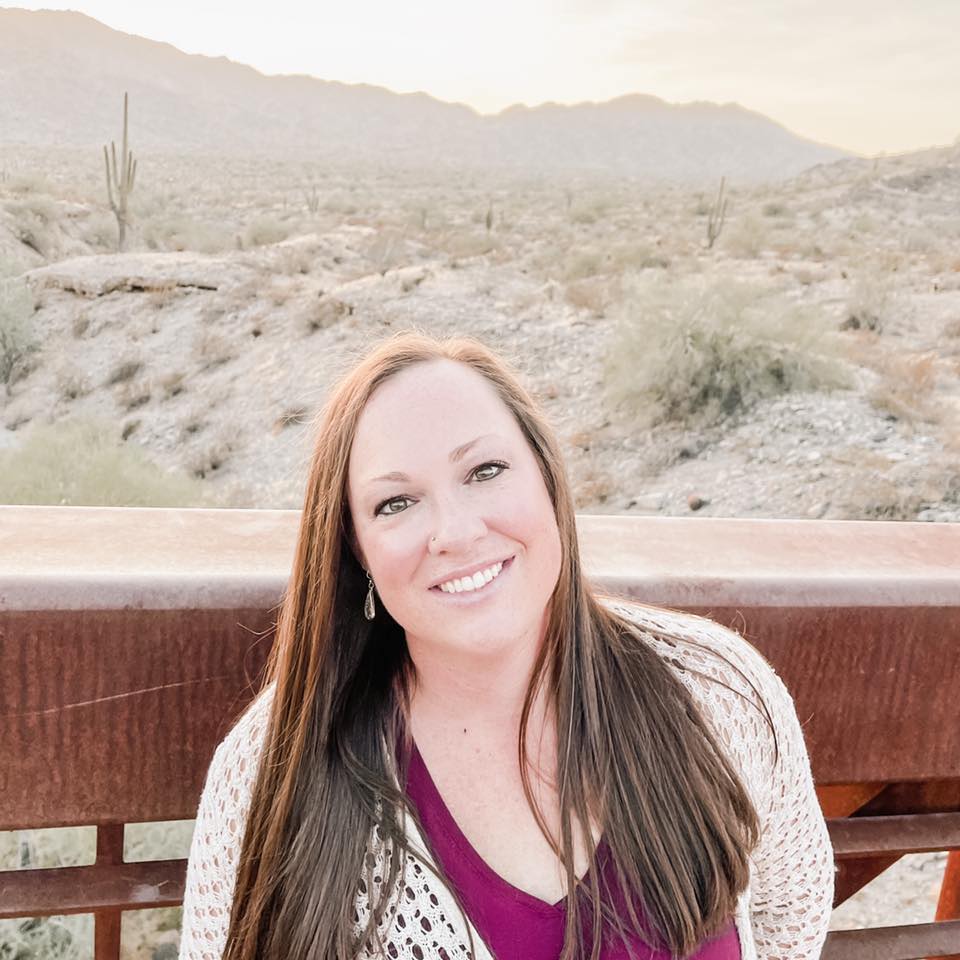 Sarah de Orlando is an author, speaker, and the Chief-Hope-Giver of Sarah de Orlando Coaching. A season in Poland began a five-year journey to help her embrace her unique design beyond what she thought she “should” or “could” do as an engineer. In early 2021, she bravely left her structural engineering career to pursue her new calling full-time. Sarah’s passion is to coach women to discover and step into their God-sized dreams to impact others by sharing their stories. Sarah and her husband, Andrés, have one adorable daughter, “Bug.” You can find Sarah hiking through forests or beachcombing for sea glass in her downtime. Her debut memoir, Love Letters from Poland, was released in 2021. Connect with her on Instagram @sarahdeorlando and www.sarahdeorlando.com. Wizzz!--out when Dad’s line before deftly landing near the pond’s alcove of pines. I sat straight like a rod in the middle of the canoe. The red-white bobber indicated no takers. “Dad, nothing is happening!” “Shhh, Bean. We have to be patient.”
Until I became a mother, I didn’t see why my father loved to take me fishing. Silence. Sure, he enjoyed the sport and pan-fried rainbow trout. But I’m on to his method that went something like, “Hey kids, let’s pile into a boat and see who can be the quietest as we wait out the morning for a bite.” (And leave your mom at home to rest.) Reality hits home: rest seems impossible. I once heard Thomas Edison liked to fish every morning. He never caught a thing because he didn’t use bait; fish and people left him alone for an hour to think. I too, crave white space to think uninterrupted from “Mami, I want a snack,” construction noise, phone notifications, social media feeds, and more. And those things are the external distractions. Forget about the mental to-do list, the reel of shame on repeat in my mind, and discouragement. I’m not beyond daily struggles, friend. Maybe it’s just the season I’m in with a bright, talkative toddler that has me daydreaming of silent retreats. But I also think much deeper movements of culture drive it. Feeling pressured always to be on, reply to Facebook, Instagram, Marco Polo, emails, texts, and more. That doesn’t even touch the lovely Christmas and new years notes we received, and I haven’t acknowledged them from six months ago. I fear we might be on the “doesn’t get a card” list next year. Just pile on more pressure that I feel the need to respond to everyone with my undivided attention thoughtfully. If only I could get on top of it all, I would feel peaceful and able to rest. I can’t do it all! You’re not meant to, my soul whispered. In his book, The Ruthless Elimination of Hurry, John Mark Comer warns against our dependence on our phones. Even if it’s turned off, but in the same room as us, it affects our “working memory and problem-solving skills.”1 I believe it. Phones interrupt my concentration and always beacon for one more thing to do before bed. It’s a constant reminder of to-dos, activities, invitations, and work piling up if I don’t just do that “one last thing.” But it’s never that last thing is it? Before living in Poland in 2016, I lived a hurried, stressed life. I conditioned myself to believe it was the only way to get things done. In different seasons, compounding stressors like work, social life, church, and family needs collided and I’d melt down in tears. But in Poland, working abroad with two suitcases and a few coworker acquaintances, my schedule quickly opened up. It revealed how much I had depended on doing things to feel good about myself. By grace, instead of falling back into old ways, I chose a new rhythm. I decided to have work-free Sundays which included strolls in the park, podcasts, reading, and connecting with family back home. One full day of rest made me actaully excited for work on Mondays! This is possible for you too. Do you relate with the overpacked schedule? Here are some ways you to evaluate if you need more rest from shorted list from The Ruthless Elimination of Hurry.2 Do you struggle with:
An Invitation To Rest What if doing less is the more I need? And it’s not just me. Culturally, the U.S. is more connected than ever with our devices. But there is a correlation to more burned out, less productivity, and greater mental health issues like anxiety and depression. Something has to slow down. But it takes discipline. It takes intentionality to accept the invitation your body, mind, and soul crave: rest. Yes, you’re invited to rest. Rest is a beautiful reset to our mind, body and spirit. It helps us have meaningful connections with others, ourselves, and our spirituality or faith. We come back to work refreshed, with more creativity and productivity than if we had just powered through. When our bodies slow down, our minds pick up speed in healthy ways with reflection. Cognitive neuroscientist, Caroline Leaf, in her book Switch On Your Brain, states that taking time to reflect increases our critical thinking skills, peace, and feelings related with happiness.3 In addition, taking time to slow down and notice your thoughtst helps us problem-solve. It gives us time to capture lies like “I can’t do this.” or “I screwed up again” sapping precious energy. Having a slower, intentional pace of life is possible. It begins by noticing small ways you can incorporate rest into daily and weekly rhythms. Try some of these for the next 21 days, noticing how you feel and show up for others.
0 Comments
Leave a Reply. |
AboutJocelyn is a Licensed Professional Counselor and course creator who desires to help clients heal and grow into who God created them to be. Archives
August 2022
Categories
All
|
|
Providing holistic mental health
counseling to help you find healing and live courageously. |
© 2023 Courageous Living. All rights reserved.


 RSS Feed
RSS Feed
